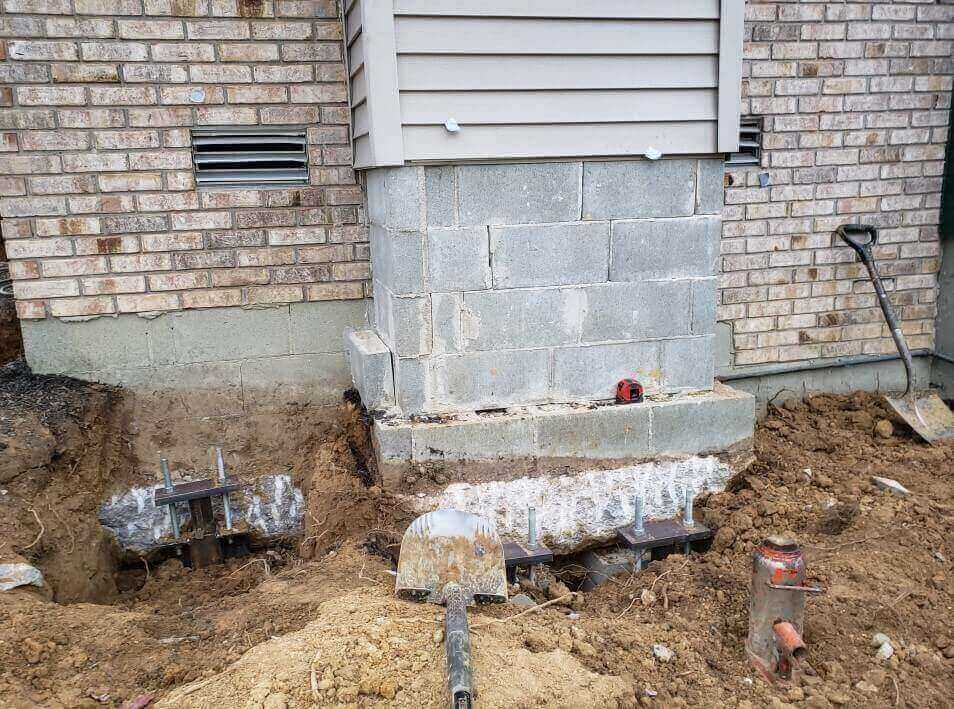In one of our other articles, we’ve provided a detailed checklist of questions you should ask a contractor. The purpose of that checklist is to help homeowners thoroughly vet prospective repair companies and contractors, before hiring someone to do the work. You want to be sure that the people you hire deserve your trust.
But when we wrote this article, we overlooked something that our customers have since pointed out: how do you find potential contractors in the first place?
Acculevel is a family-owned and operated business that specializes in foundation repair and waterproofing. We’ve been helping homeowners preserve and protect their homes since our start in 1996, and we want to do the same for you.
In this article, we’re going to provide resources to help you find a reliable general contractor who can make updates to your home after we’ve repaired your foundation or waterproofed your basement.
Three Steps to Finding a Good General Contractor
1. Start Your Search Close to Home
- The best way to find a contractor who will treat you and your home respectfully is through their previous customers. Ask friends, family members, or neighbors if they’ve used a general contractor for work similar to your own project.
- If this does not prove fruitful, extend your search and check with your HOA, if you have one. The work may not be something covered or managed by the homeowners’ association, but most organizations have a list of preferred service providers.
- Don’t belong to an HOA? Contacting your local chamber of commerce is a great resource. Repair companies and contractors are often paying members, expressly for the purpose of being easily located through this office.
- You can also try going ‘directly to the source,’ if you are looking for a specific type of repair contractor. For example, if your town has a local brick & tile yard, they could be a good source for finding a masonry contractor.
2. Try a Regional Approach
- If options close to home aren’t working for you, reach out to the realtor you used when you bought your current home. If they’re not available, contact their affiliated agency. Many realty companies keep a short list of reliable contractors they work with, if home inspectors find issues. A good example of this is F. C. Tucker, here in Indiana.
- You might also contact your utility company. Duke Energy maintains a searchable database of contractors in their service areas. Their website notes that only current Duke customers are eligible to receive energy rebates; but anyone is welcome to use their referral services.
3. Paid Online Services Are an Option
- You can always submit your project information to a national referral service, if you want to broaden your search parameters.
- Angie’s List and Home Advisor are probably the best known of these referral services. Both of these are free for homeowners to use; but the contractors on the site pay to be members, and are charged a fee for your referral.
After Narrowing Your Search, What’s the Next Step?
Once you have a candidate or two selected, you need to do a bit of homework before you schedule an appointment with them. We highly recommend that you use the Better Business Bureau to verify the information you have about each contractor.
We also recommend that you use the checklist that we mentioned at the beginning of this article. This article provides our company’s answers to the questions, but it also includes a blank downloadable form you are welcome to use as you meet with other vendors.
This checklist was created after multiple meetings with our own Acculevel project managers. Our project managers have a great deal of home repair experience. Many have been independent contractors themselves, or have previously worked as home inspectors or insurance adjusters. This means that in addition to the more common homeowner questions, our checklist also includes questions that many homeowners wouldn’t think to ask.
[DISPLAY_ULTIMATE_SOCIAL_ICONS]
